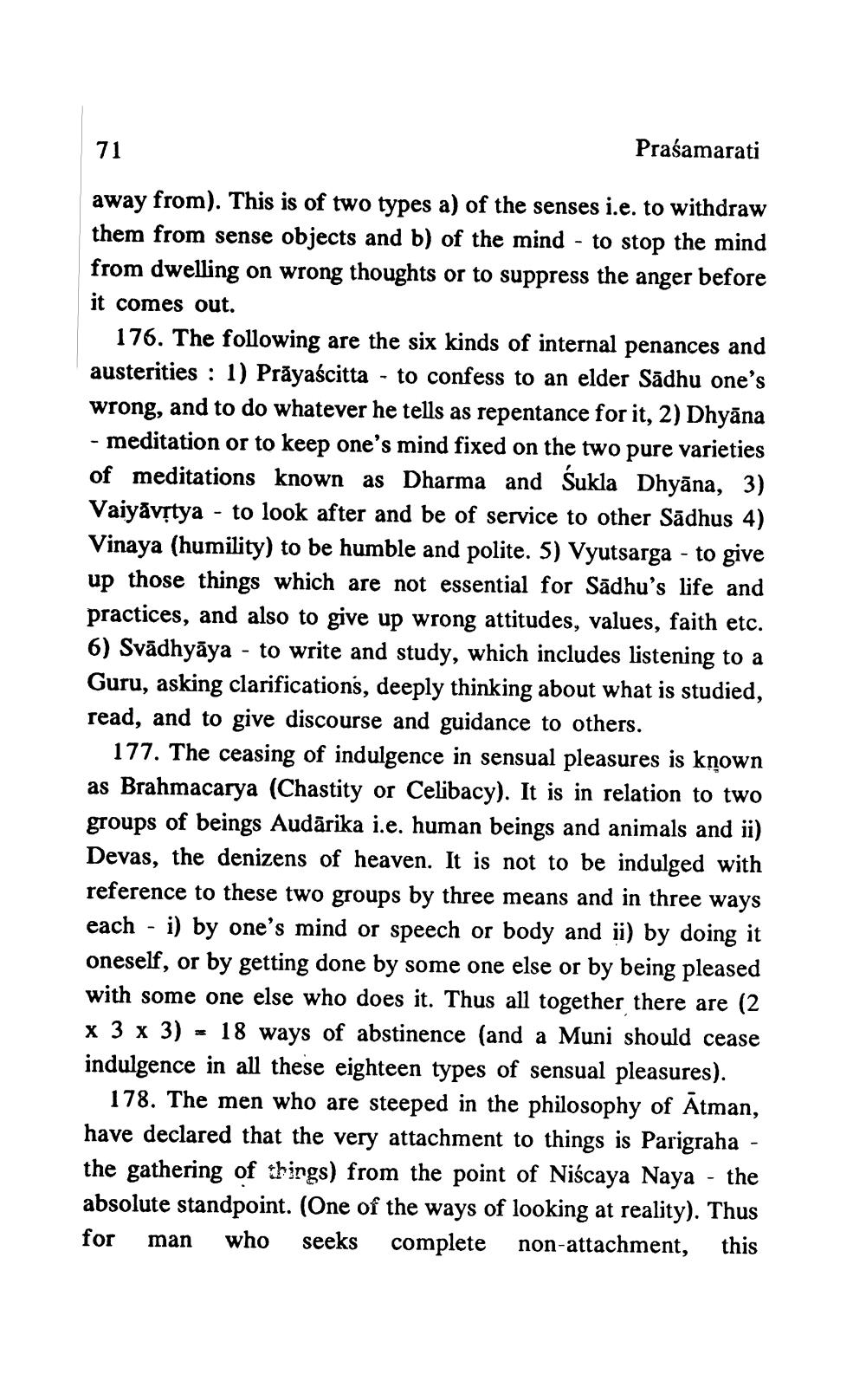________________
71
Praśamarati
away from). This is of two types a) of the senses i.e. to withdraw them from sense objects and b) of the mind - to stop the mind from dwelling on wrong thoughts or to suppress the anger before it comes out.
176. The following are the six kinds of internal penances and austerities : 1) Prāyaścitta - to confess to an elder Sādhu one's wrong, and to do whatever he tells as repentance for it, 2) Dhyāna - meditation or to keep one's mind fixed on the two pure varieties of meditations known as Dharma and Sukla Dhyāna, 3) Vaiyāvstya - to look after and be of service to other Sādhus 4) Vinaya (humility) to be humble and polite. 5) Vyutsarga - to give up those things which are not essential for Sādhu's life and practices, and also to give up wrong attitudes, values, faith etc. 6) Svādhyāya - to write and study, which includes listening to a Guru, asking clarifications, deeply thinking about what is studied, read, and to give discourse and guidance to others.
177. The ceasing of indulgence in sensual pleasures is known as Brahmacarya (Chastity or Celibacy). It is in relation to two groups of beings Audārika i.e. human beings and animals and ii) Devas, the denizens of heaven. It is not to be indulged with reference to these two groups by three means and in three ways each - i) by one's mind or speech or body and ii) by doing it oneself, or by getting done by some one else or by being pleased with some one else who does it. Thus all together there are (2 x 3 x 3) = 18 ways of abstinence (and a Muni should cease indulgence in all these eighteen types of sensual pleasures).
178. The men who are steeped in the philosophy of Atman, have declared that the very attachment to things is Parigraha - the gathering of things) from the point of Niscaya Naya - the absolute standpoint. (One of the ways of looking at reality). Thus for man who seeks complete non-attachment, this




